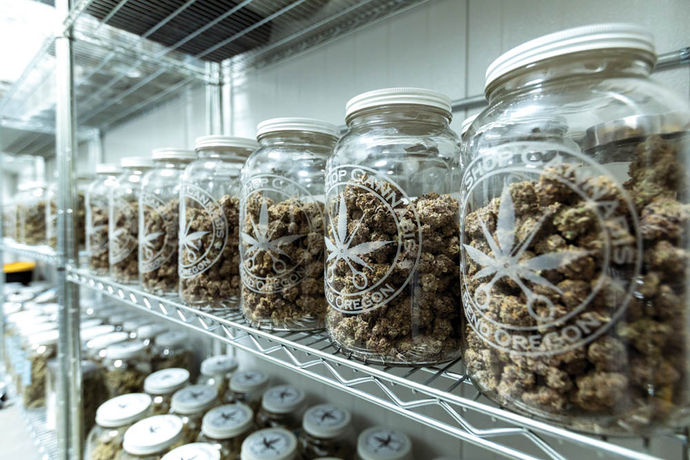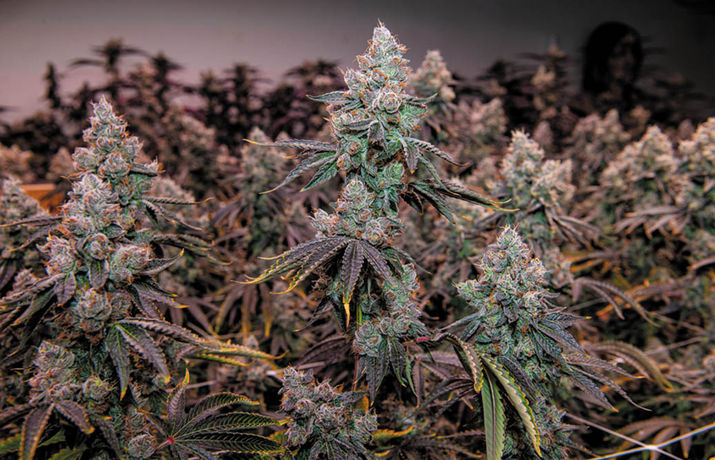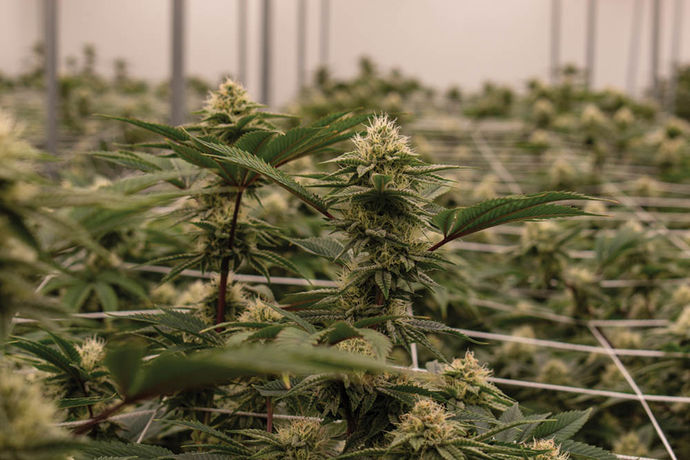Rising out of the Tri-Cities Columbia River Basin is a football field-sized greenhouse that glistens with a shimm ering pink hue as plants dance under LED lights.
Glowing and growing year round, this all-inclusive biosphere is the handiwork of the team at Legacy Organics – where sustainable, living soil growing practices combine with a Cannabis science approach to agronomics – producing beautiful flowers in a grow that is completely unique to Washington state. These methods are powered by a team dedicated to terpene production for fresh-frozen flowers, ultimately to be processed into the delicious concentrates that this issue of the Leaf celebrates.
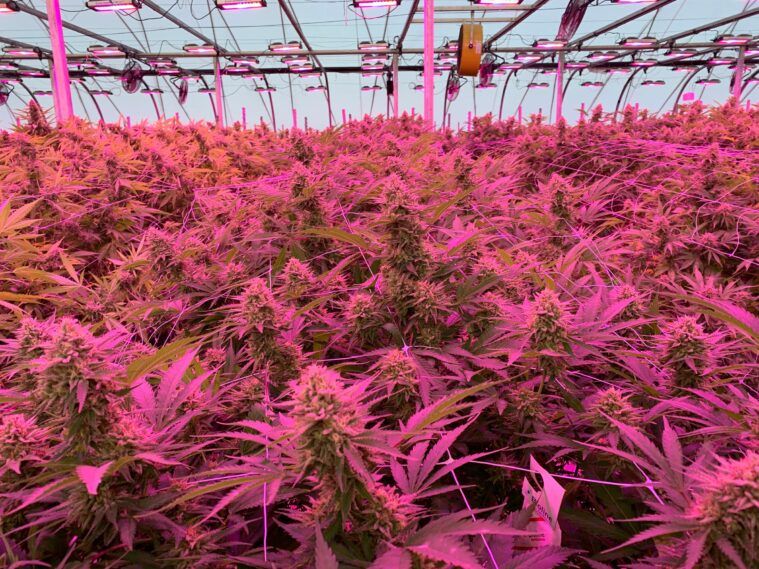
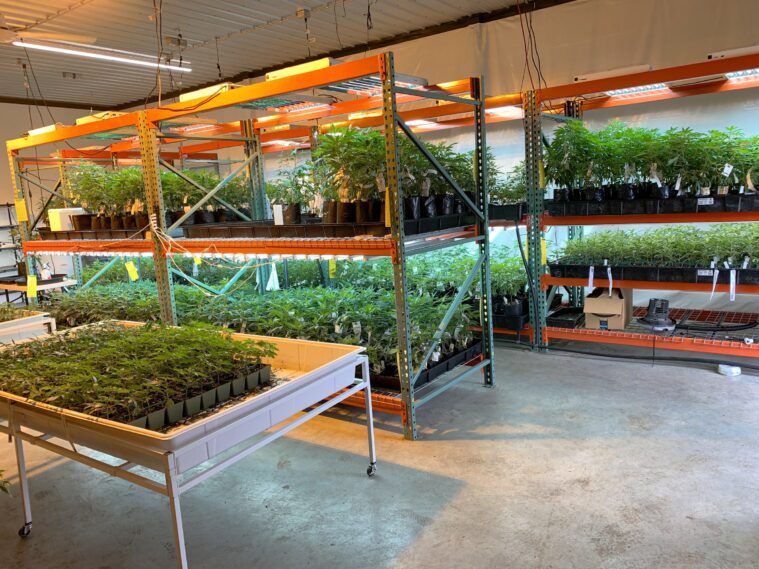
Garden Manager Jay Kennedy has been growing since he was barely old enough to buy cigarettes, and while he doesn’t have a high school diploma, this self-proclaimed “avid reader” speaks like a graduate of a plant science degree program. The entire growing program behind Legacy Organics was designed to create a living biosphere within the greenhouse – where everything from the soil to beneficial microorganisms and bugs – combine to live in harmony with the Cannabis plants that are at the center of the ecosystem.
At Legacy Organics, the soil is filled with amendments including crab shells and fish meal that stimulate the plants’ roots into thinking that there are a large amount of exoskeletons (meaning lots of unwanted bugs), which triggers an enhanced terpene production as the plant seeks to ward away danger. This bio-science is combined with constant monitoring of soil temperature, which is kept at a similar temp to that of a normal harvest season of a warm fall, along with weekly soil and tissue sampling to see what nutrients or amendments either the soil or the plants need.
“When you have micro-arthropods tickling the root system, and beetles and insects, when you have living soil – then the plants signal natural and complex terpene profiles, because the plants are sending out chemical signals to call in natural predators,” Kennedy explained. “There are obviously no natural predators in this controlled biosphere, besides predator mites or rogue beetles … that’s why the Cannabis has a more complex terpene profile – the living soil mimicking the living environment and kicking in the plants’ natural defense mechanisms.”
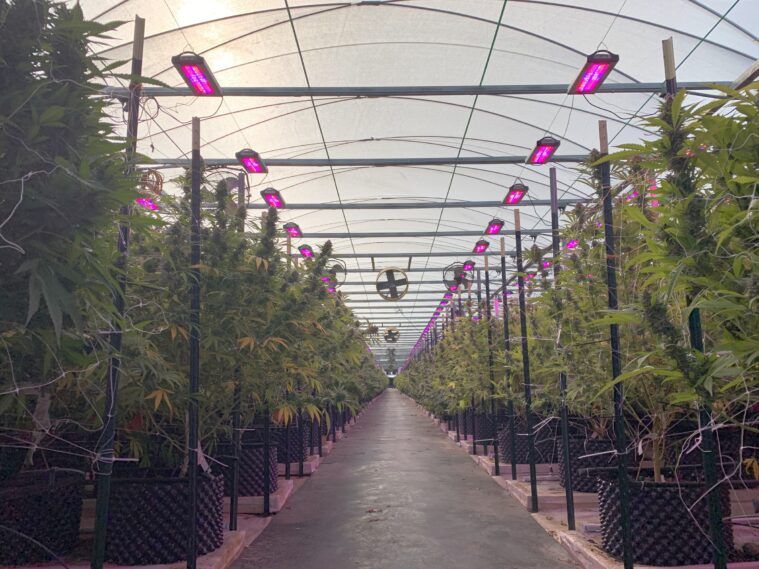
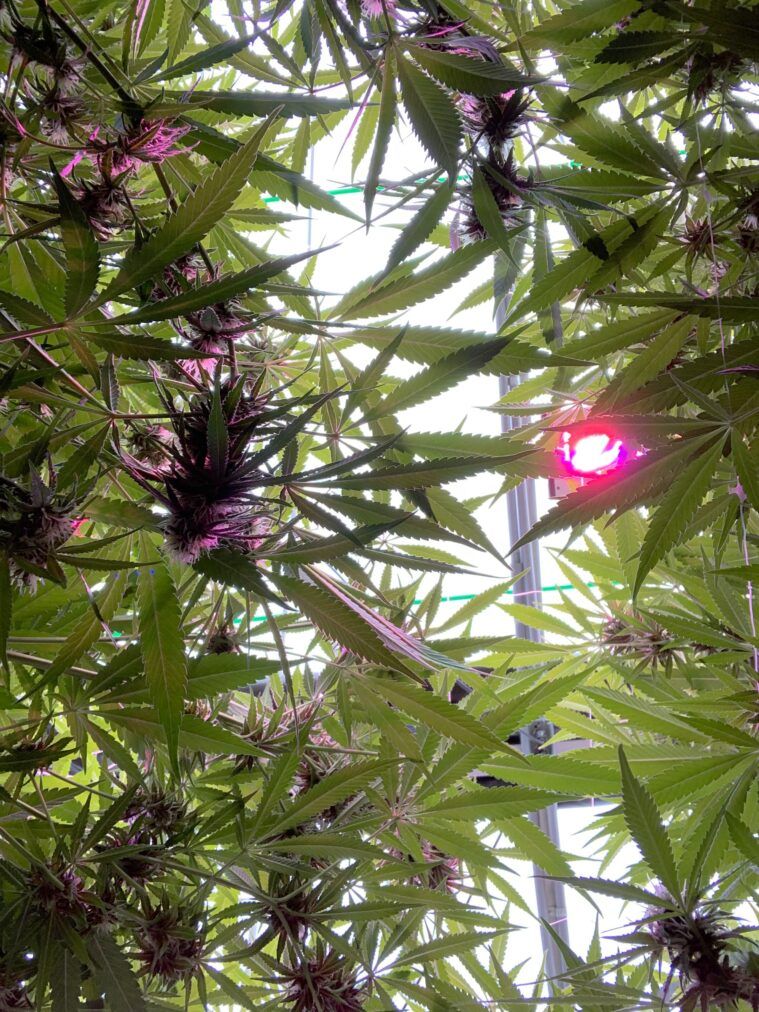
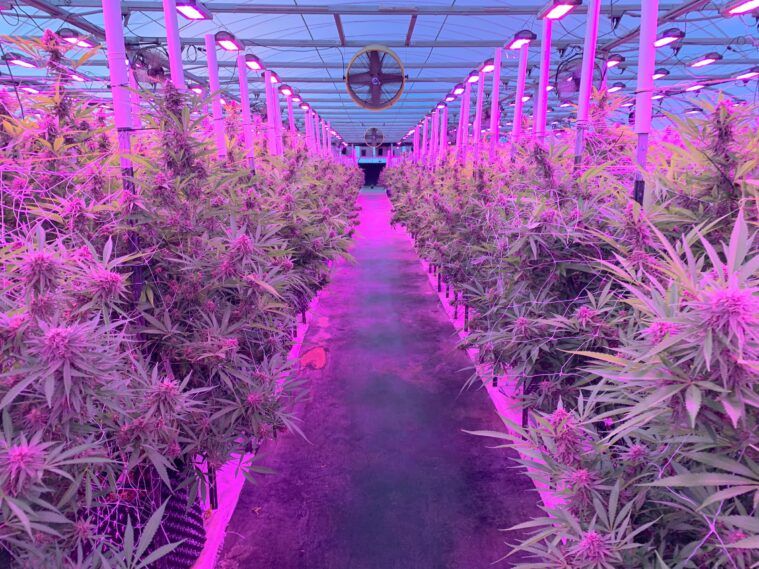
This all comes to life within the greenhouse, which is more of a bubble (like those used for indoor soccer) than a rigid structure. It is held up in part by positive air pressure, keeping the structure inflated and containing all the air inside – safe and circulating without outside contamination. The next major factor in their growing process is the living soil, which is an organic base that is amended with organic nutrients and microorganisms that thrive together. While this might sound like normal organic growing, it’s unique because most Cannabis is grown indoors in sterile mediums like coco or rockwool, or in hydroponic systems where there isn’t even dirt for the plants’ roots to stretch in.
“That’s why we’ve built a biosphere – a living environment and controlled ecosystem that we have in the greenhouse. And with the more complex terpene profile, it’s why our oil always comes back with the terps off the charts,” Kennedy said proudly.
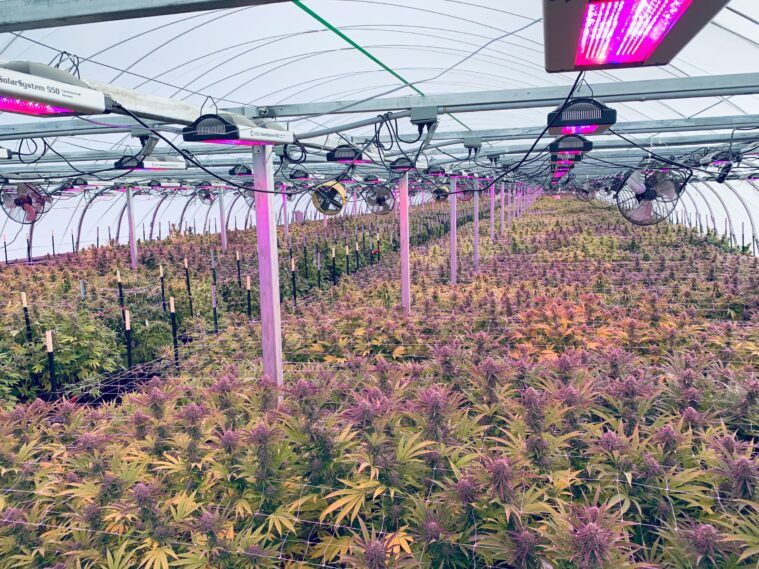
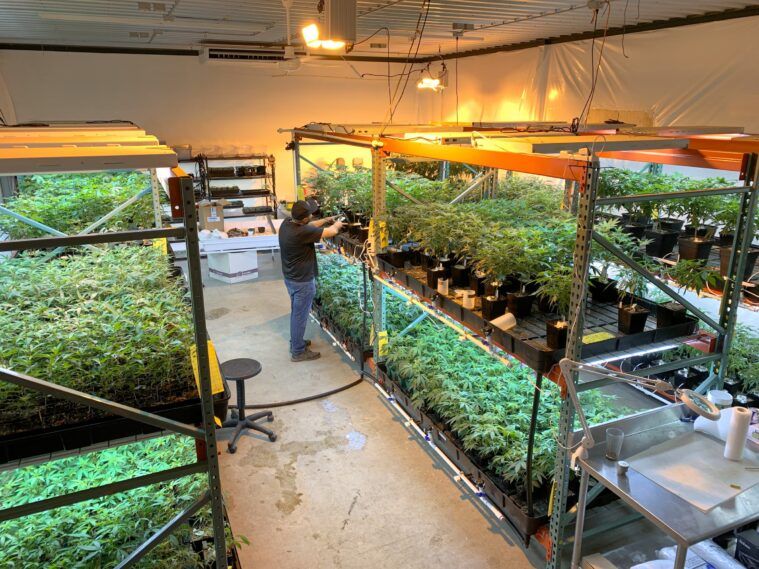
The environmental controls have pushed the football field-sized grow to produce huge harvests that supply other processors, like Mammoth Labs and Bodhi High, with material to turn into concentrates for sale at retail stores. About a third of each harvest’s flower will be fresh frozen in the onsite freezer, another third gets hung in a climate-controlled curing room for slow-dry, hand-trimmed craft Cannabis, and one third goes through automation for processing. Everything at the farm is optimized for efficiency and space, allowing for the curing room to hang and dry, then store the finished products before packaging and sales.
“This round alone we grew about 2,700 pounds of fresh frozen flower, and then another 350 pounds of fresh frozen trim, coming from 1,200 plants,” explained Josiah Glesener, the processing manager for the farm. “Then there was another 1,100 pounds of dry flower that will either be sold as Legacy Organics’ line, or be sent out as wholesale products.”
With literal tons of Cannabis coming out of the first greenhouse annually, the team is now looking ahead to the partially completed second bubble – with a third planned to come online in 2023. As the farm continues to grow, the team has focused on building a consumer and industry-focused brand, so that processors and terp-hunting smokers alike can begin to ask for Legacy Organics products by name. With this mindset, the team has created beautiful packaging that avoids plastics, continuing the full-circle, seed-to-sale process that works with the environment, instead of against it.

While growing organically has a smaller return on investment and the margins are tighter, Legacy Organics is focusing on sustainability – starting with the process and the products to leave a positive impact on the world, and to produce the terpiest flowers possible with each harvest.
“Our intention to be in harmony with the environment is why we chose to use all-glass tubing for our joints and avoid single-use packaging. With as much waste as the Cannabis industry creates, we would rather have a larger overhead and take a cut on our return on investment to play the long game, and use quality gas and eco-friendly material instead of single-use plastic packaging,” Kennedy said passionately. “The reason for these practices and our overall brand name was to leave a legacy – to leave the planet better than it started off with.”


